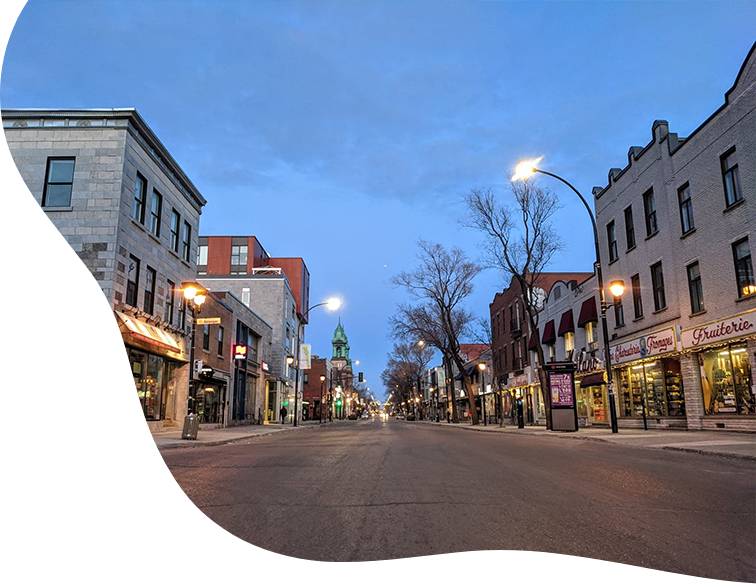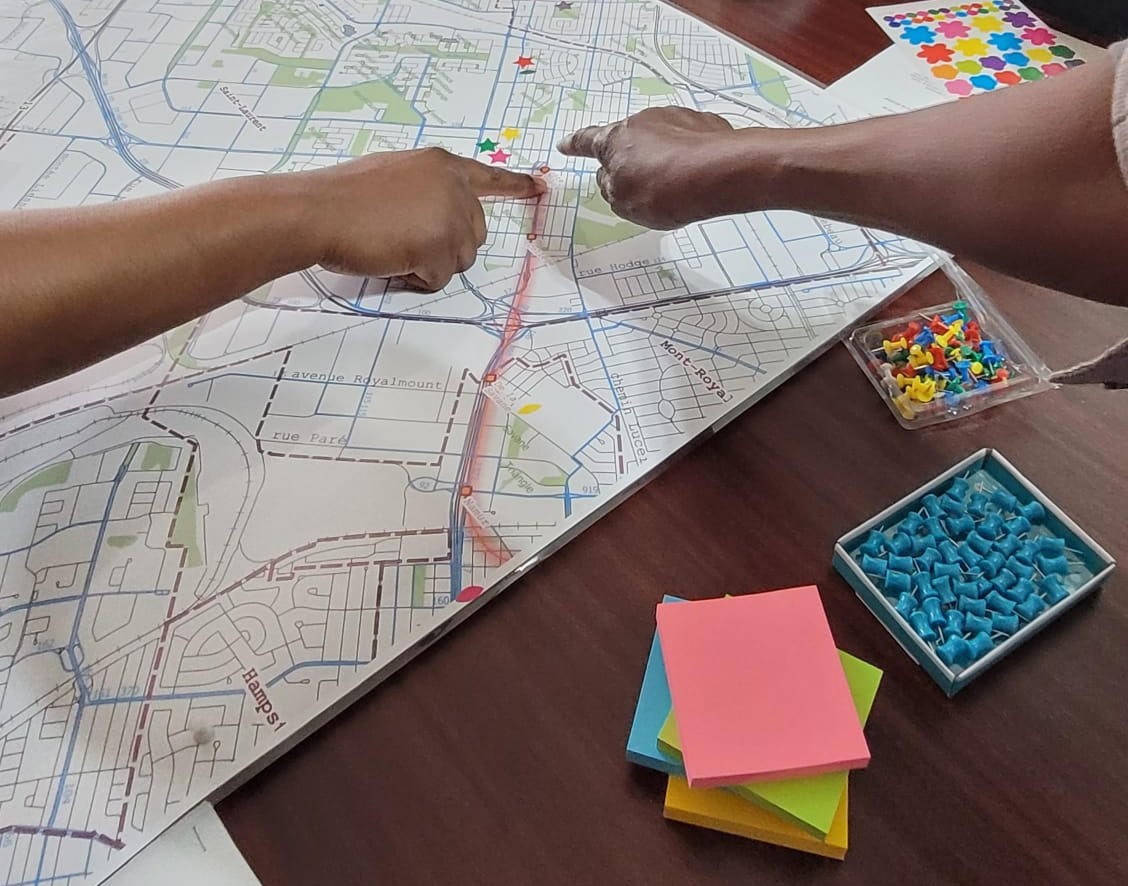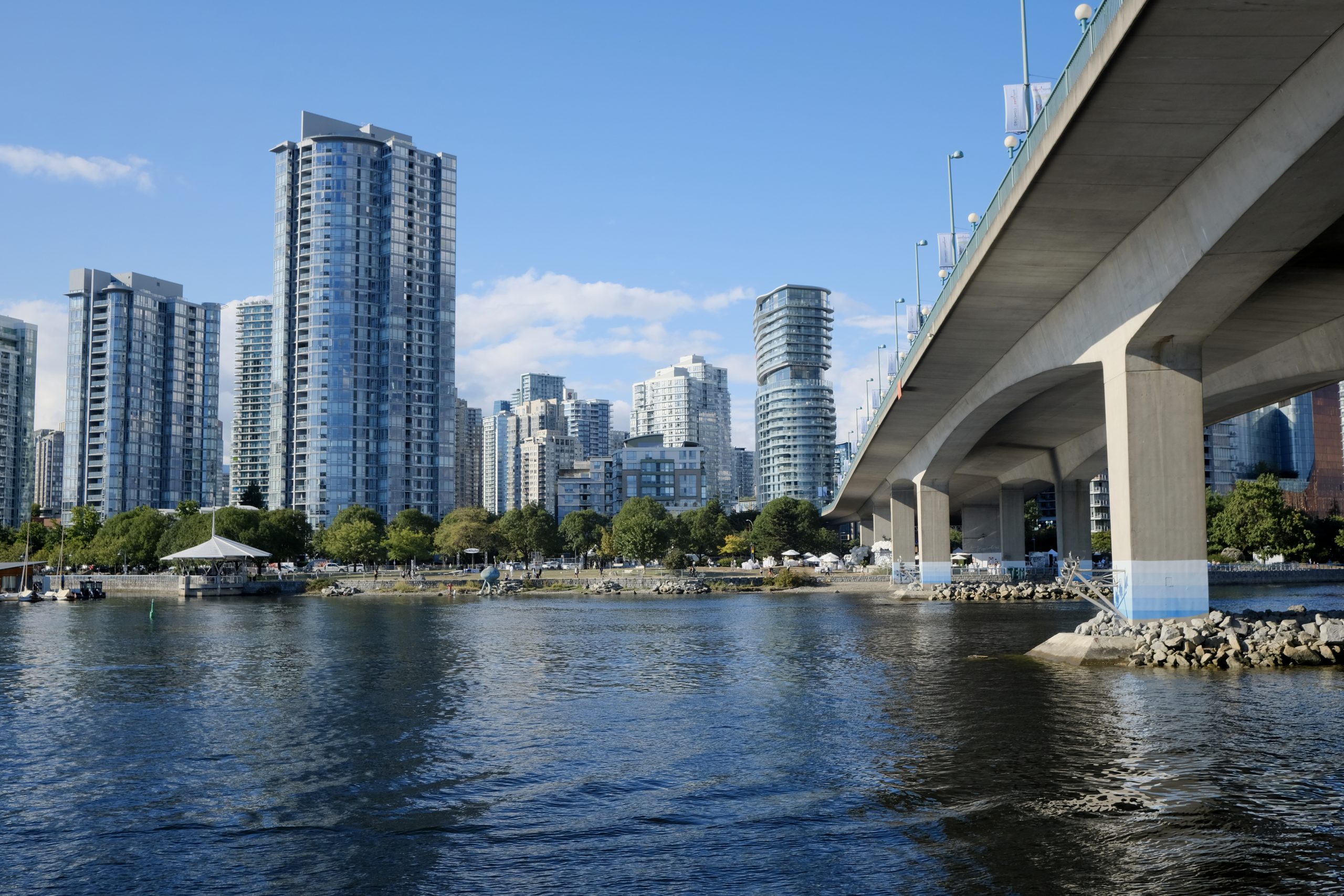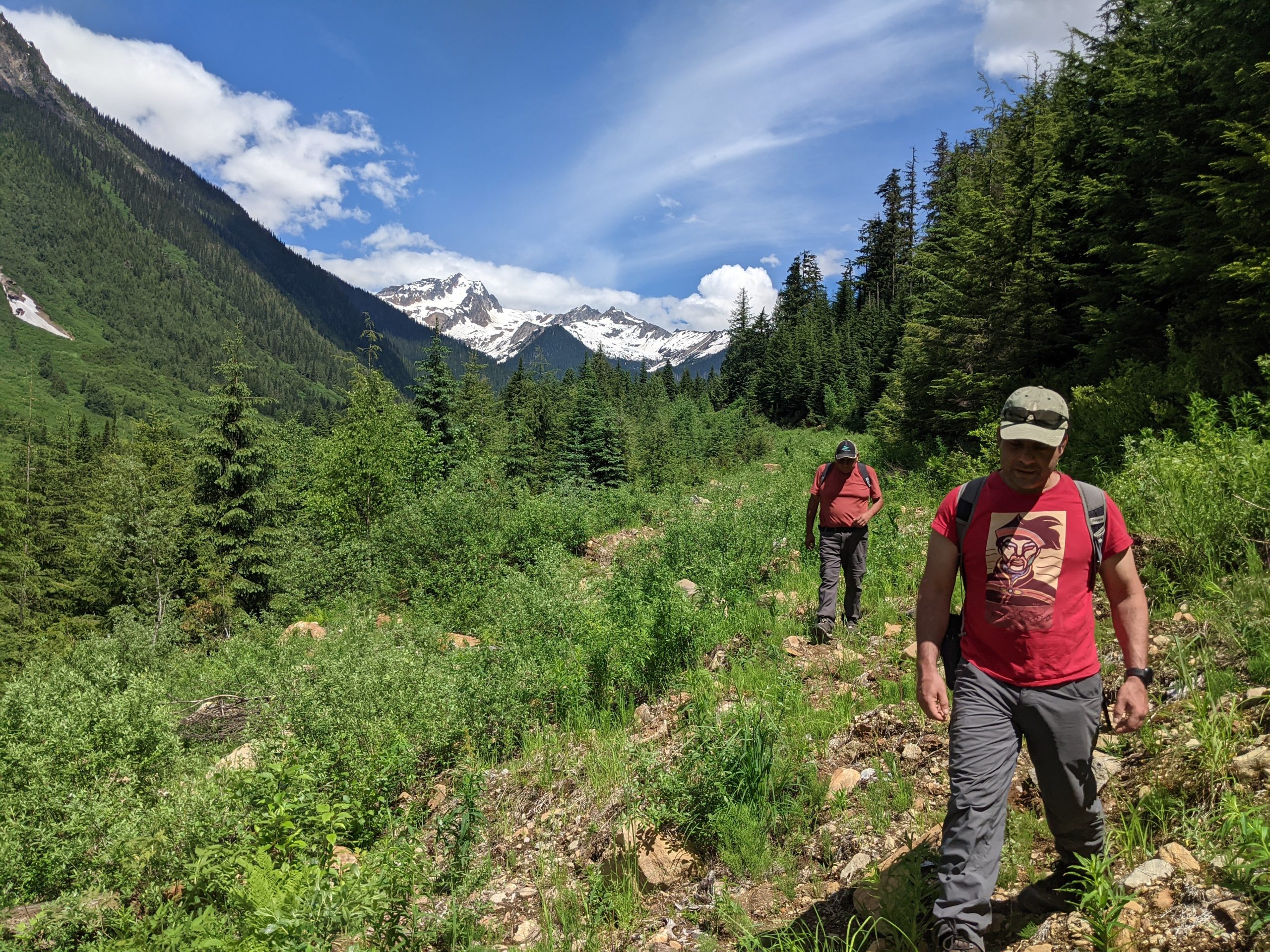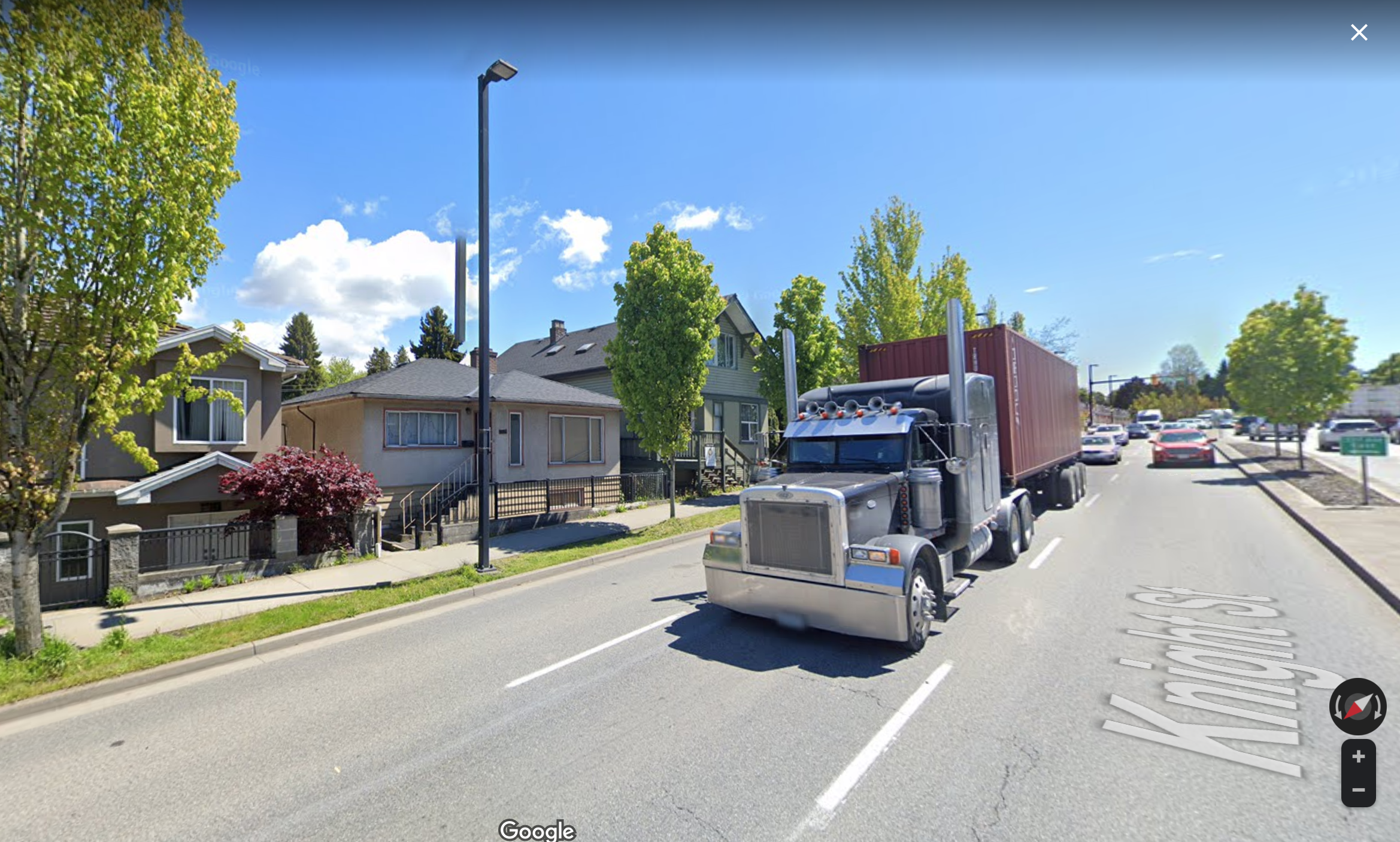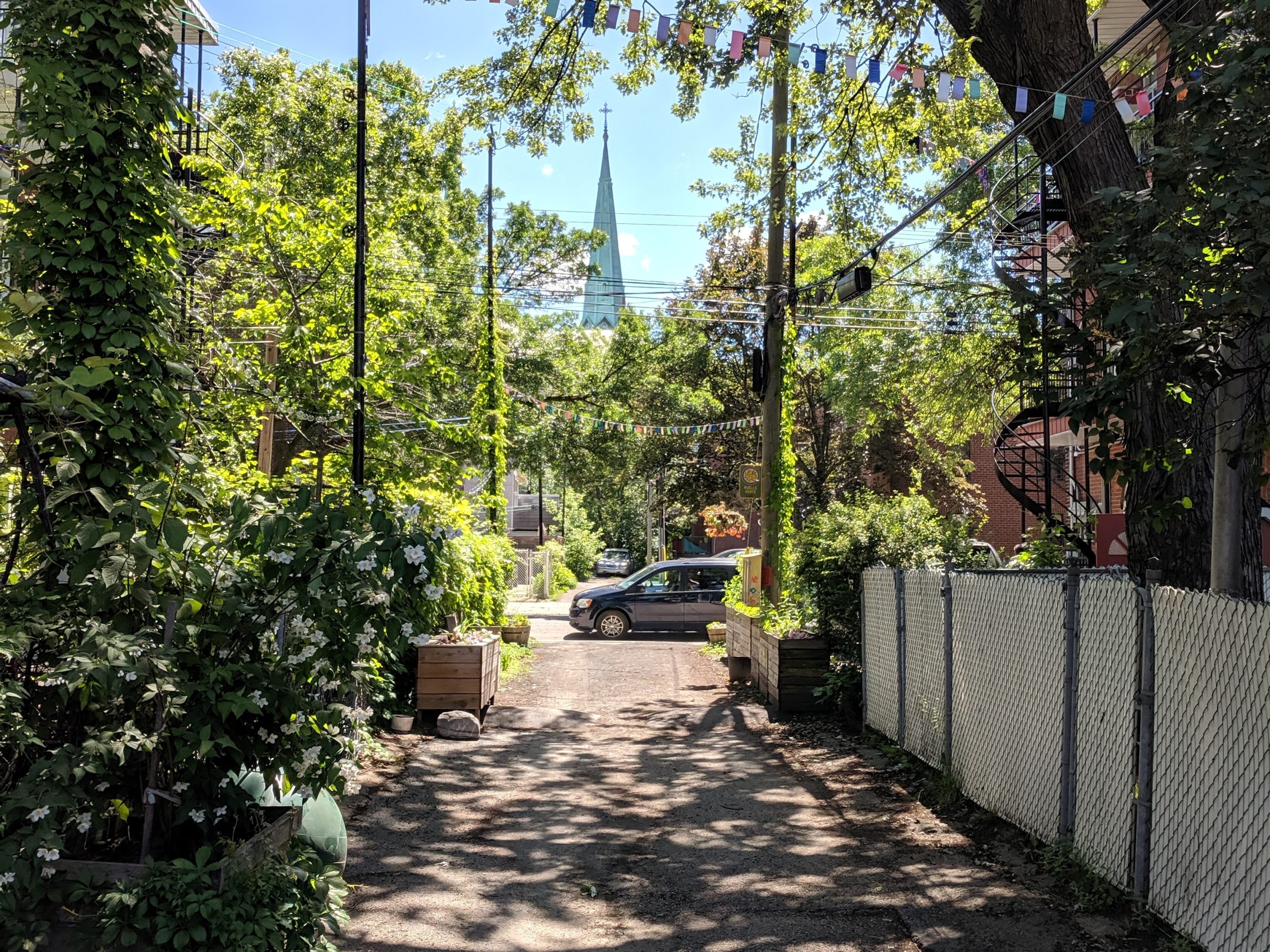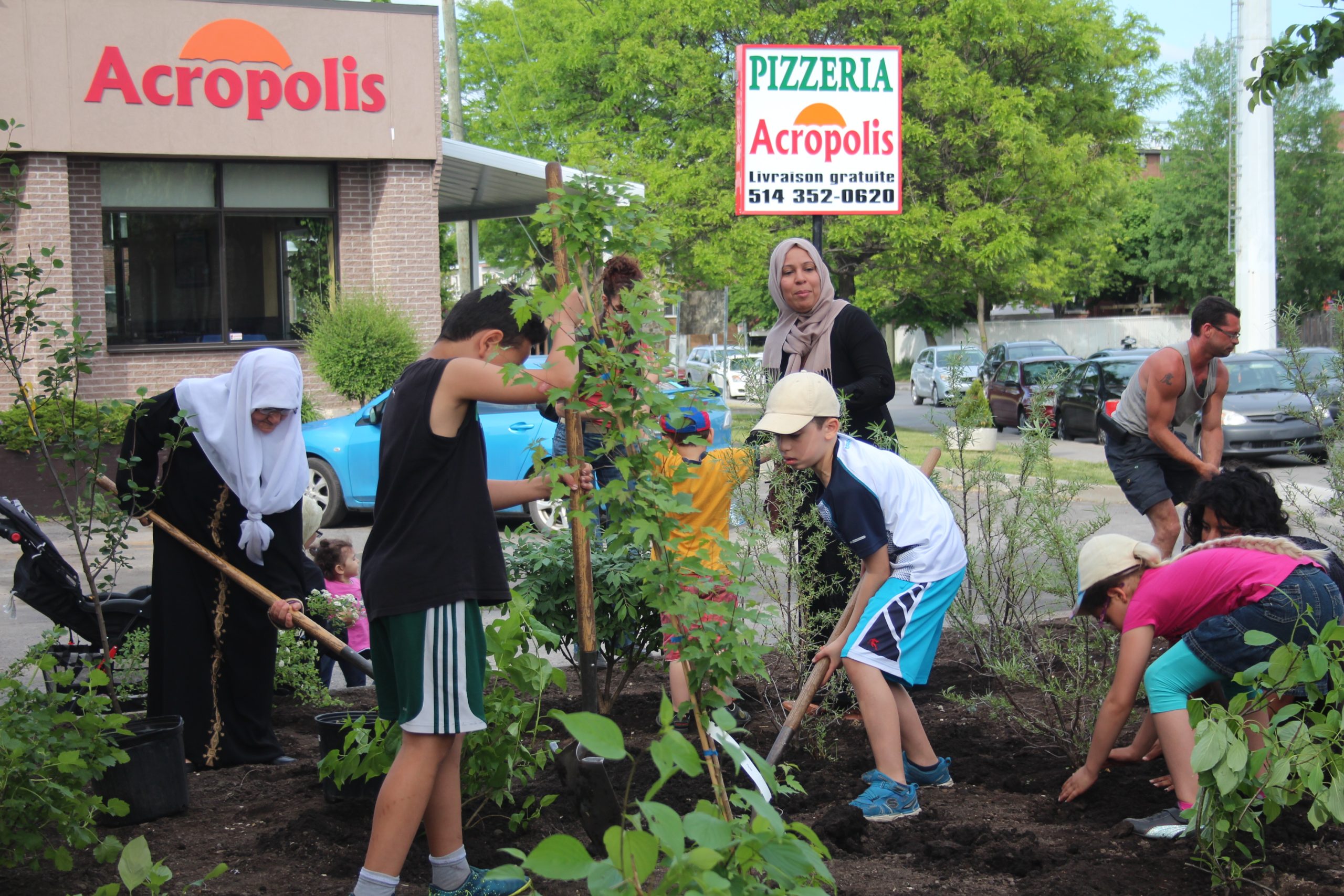Cities, Climate and Inequalities - Urban inequality and planning in a context of socio-ecological transition: The Conseil interculturel de Montréal’s action research experience
2 May 2024
By Chloé Reiser
In Montreal, territorial inequalities are a central issue in planning policies, with a view to a fairer socio-ecological transition. Although the City of Montreal recognizes the existence of such inequalities within its territory, much remains to be done to guarantee equitable access to urban resources for all citizens. As part of the renewal of the city’s Urban Planning and Mobility Plan, the Conseil interculturel de Montréal (CIM) is looking at the experiences of immigrant and racialized people in terms of territorial inequalities. Drawing on an in-depth review of grey and academic literature, as well as an online survey and mapping-discussion workshops conducted in three disadvantaged city neighborhoods – Saint-Léonard, Saint-Laurent and Montréal-Nord – immigrant and racialized people not only identify obstacles to accessing urban resources, notably public transport, affordable housing and green spaces, but also put forward solutions to address these persistent issues.
Cities, Climate and Inequalities - Exploring equity and justice content in Vancouver’s environmental plans
22 April 2024
By Emeralde O’Donnell et Andréanne Doyon
Scholars have raised concerns about vague uses of equity and justice terms negatively impacting equity and justice work in planning. We explored the link between equity and justice framings and outcomes in four of Vancouver’s environmental plans. With the inequitable impacts of climate change and a history of planning worsening inequities, we must consider how approaches to equity and justice are impacting planning work in our cities.
Cities, Climate and Inequalities - Supporting climate action and Indigenous self-determination: Ethical space-based planning in the Upper Columbia region of British Columbia
2 April 2024
By Moe Nadeau
Planners play a key role in shaping society, but have historically oppressed Indigenous communities. Adopting Ethical Space-based planning can balance power dynamics between Indigenous and non-Indigenous governments, fostering collaboration and ethical decision-making for land. Indigenous voices are the key to climate action, as their deep connection and commitment to act in relationship with the land supports long-term sustainability. This research offers recommendations to advance Ethical Space in planning initiatives. Through Ethical Space, planners can create more just and resilient futures.
Cities, Climate and Inequalities - Clearing the air: Barriers to improving air quality and reducing environmental inequity along Vancouver’s Clark-Knight corridor
25 March 2024
By Nancy Lai-Chu Chan
Based on a thesis completed for the SFU Masters of Urban Studies Program, this research summary focuses on the investigation of barriers to implementing policies and programs to improve air quality and reduce environmental inequity related to traffic-related air pollution exposure along the Clark-Knight corridor, home to a six-lane arterial road and one of the busiest, most polluted truck routes in the Metro Vancouver region.
Cities, Climate and Inequalities - Montreal’s green alleyways: Spatial disparities and variations
14 December 2022
By Thi-Thanh-Hiên Pham, Ugo Lachapelle, Basile Mangiante and Alexandre Rocheleau
Green alley programs, increasingly promoted by cities across North America, generally aim to transform alleyways into green infrastructure, providing more ecosystem services, improving road safety and enabling ownership by local residents. In Montreal, they are more present in medium- to high-density, middle-income areas, with more young people and lower percentages of couples with children. They are less present in neighborhoods with more recent immigrants and visible minorities.
Cities, Climate and Inequalities - ILEAU: An innovative greening campaign contributing to the ecological transition and urban resilience of Montreal’s east end communities
9 December 2022
By Caroline Côté
ILEAU is a greening campaign created in 2015 coordinated by the Conseil régional de l'environnement de Montréal that is being rolled out in eight boroughs in eastern Montreal. The ILEAU campaign has developed a series of actions aimed at greening and creating islands of freshness through the involvement of different milieus: community, institutional and corporate. A vision of collective action federated in the large-scale green and active grid project mobilizes organizations and citizens to improve living and working environments in the east end of Montreal.
